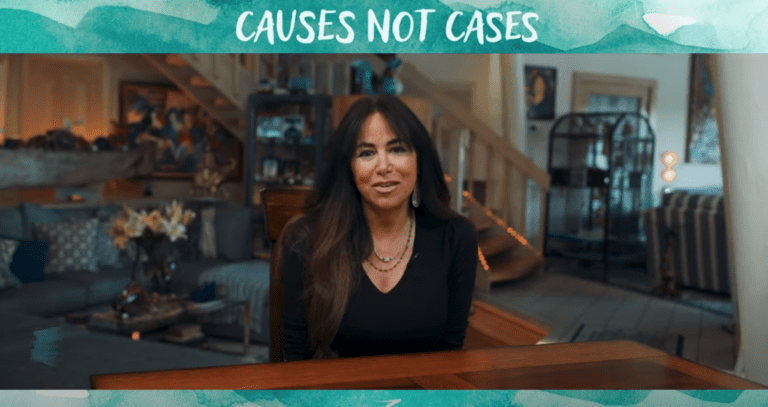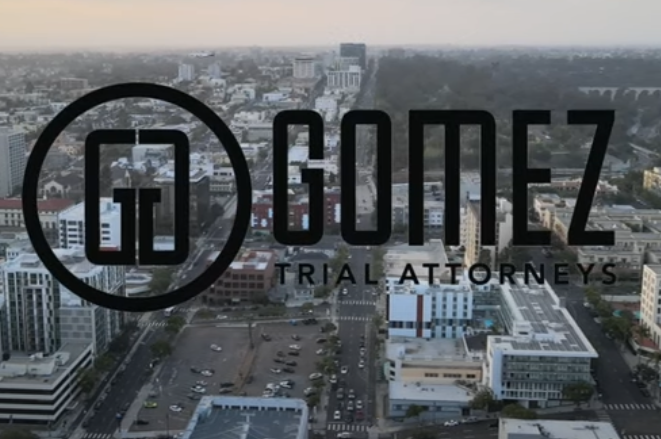Table of Contents
When you get behind the wheel, there is a responsibility on your shoulders — not just toward yourself and your passengers but also to fellow motorists and pedestrians. One of these obligations involves avoiding reckless driving, which can have grave implications for road safety.
Not only does reckless driving jeopardize lives and property, but it also carries legal consequences, including heavy fines, loss of driver’s license privileges, or even incarceration in severe cases.
Generally speaking, reckless driving entails operating a motor vehicle with disregard to the danger it might pose to others or behaving without caution while on the road. This broad definition captures various behaviors that may put lives at risk.
What Exactly Is Reckless Driving in California?
In California, reckless driving is defined as operating a vehicle with willful or blatant disregard for the safety of people or property.
A prosecutor must establish two key elements:
- You were driving on either a highway (or any publicly maintained area open for vehicular travel) or in an off-street parking facility — this can cover both publicly-owned facilities and privately owned ones available to retail customers free of charge; parking lots that are privately owned and not open to the public are not covered by this statute.
- Your actions behind the wheel demonstrated wanton disregard toward safe practices, which usually implies that you recognized your actions’ had potential risks and still deliberately decided against mitigating them.
It’s crucial to understand that under California law, speeding alone doesn’t necessarily prove instances of reckless driving; it’s just one factor. Additionally, you do not have to intend to cause damage to be guilty of violating this vehicle code.
8 Examples of Reckless Driving
The following are eight examples of reckless driving.
1. Speeding in a School Zone
Speeding, particularly well above the limit and especially in sensitive areas like school zones, is an example of reckless driving. The dangers here are multiple and severe; children often lack the road awareness that adults have, making them more vulnerable to speeding vehicles.
Not only does high speed reduce a driver’s ability to steer safely around corners or objects in their roadway, but it also extends vehicle stopping distance once brakes have been applied, ultimately leaving little room for error.
2. Tailgating in Bad Weather
Another blatant exhibition of reckless driving includes tailgating, or following too closely behind another vehicle, especially in adverse weather conditions, which already compromise road safety.
Driving extremely close to the car ahead drastically shortens your reaction window if unexpected changes occur — the driver ahead may brake suddenly or swerve due to obstacles on the road before them. With limited time and space available in tailgating situations, you’re far more susceptible to rear-end collisions that could escalate into chain-reaction crashes involving multiple vehicles. This is a danger heightened by bad weather.
If a car in front of you gets frustrated by your tailgating and decides to engage in brake checking, this could lead to disastrous results.
3. Running Red Lights and Stop Signs
Traffic signals play a vital role in managing vehicular flow and ensuring safety on the roads. When drivers decide to run red lights or ignore stop signs, they essentially disrupt this crucial control system, which can result in fatal accidents.
Ignoring these traffic controls not only puts your life at risk but also jeopardizes pedestrians crossing the road and other cars’ safety, especially those who are obeying their respective traffic signals.
4. Driving Under the Influence
Driving under the influence (DUI) involves operating a vehicle while under the substantial impact of alcohol, illegal drugs, or even certain prescription medications. Substances like these can significantly impair your driving ability by affecting critical skills needed for safe driving, such as reaction time, vision, coordination, and decision-making capabilities.
When you drive under the influence, you not only risk your own safety but also endanger everyone else on the road.
Additionally, DUI carries stiff legal ramifications ranging from hefty fines to extensive jail terms, especially if it’s a repeated incident or if injury was caused due to drunk-driving circumstances. In most jurisdictions, courts could also mandate rehabilitation programs and suspend or revoke driver’s license privileges following DUI offenses.
5. Texting or Using a Phone While Driving
Using your phone while driving is not just dangerous but is also considered reckless driving. This form of distracted driving has been implicated significantly in road accidents over recent years.
Research and statistics from the National Highway Traffic Safety Administration (NHTSA) indicate that sending or reading a text message takes eyes off the road for about five seconds — long enough to cover an entire football field if you’re going at 55 mph.
This explains why laws have been enacted across many states enforcing hands-free phone use along with specific bans on texting while operating vehicles. The goal is straightforward: minimize distractions and maximize concentration.
6. Engaging in Street Racing or Stunts
Street racing refers to unauthorized, illegal races organized on public roads. These are typically impromptu events involving two or more drivers showing off their speed and partnership with their vehicles. It may also include stunts that involve complex maneuvers designed to impress observers.
The thrill of street racing comes with dire risks and consequences — the high speeds combined with excessive showmanship drastically reduce drivers’ control over their vehicles, leading to increased chances of accidents.
Additionally, these races are usually conducted without adequate safety measures seen at licensed competitive motor-racing events, heightening dangers around such practices even further. Authorities have enforced severe penalties, including significant fines or imprisonment against illegal street racers as deterrents toward such activities.
7. Illegal Overtaking and Passing
Illegal overtaking or passing — particularly in no-passing zones or blind spots — is another form of dangerous and reckless driving. This could also include lane splitting for motorcycle riders.
No-passing zones are typically marked for reasons, usually as a safety precaution, likely due to limited visibility, such as around bends or at hilltops. Ignoring these restrictions can lead to catastrophic head-on collisions if an oncoming vehicle appears unexpectedly.
Similarly, overtaking in other vehicles’ blind spots raises the chance of side swipes because the other driver might change lanes without realizing your proximity due to their obstructed view.
8. Driving the Wrong Way on One-Way Streets or Highways
This form of reckless driving is incredibly serious. When a vehicle moves against traffic on one-way streets or highways, it’s basically heading toward a catastrophic disaster.
By driving in the opposite direction to other vehicles, you’re risking head-on collisions which are notably one of the deadliest kinds of car accidents — typically because these confrontations happen at high speeds.
The reasons behind such dangerous decisions could include misunderstanding road signs due to unfamiliarity with local road systems or being under the influence, which affects judgment and perception levels.
What To Do if You’re Charged With Reckless Driving
If you find yourself charged with reckless driving, the first thing to do is not panic. While it’s a serious charge, there are several steps you can take:
Contact an attorney. This is a critical first step you must not ignore, given the complexity of legal proceedings and the potential consequences of such charges. Look for a criminal defense lawyer specializing in traffic laws as they would be equipped with extensive knowledge about rules relevant to your case.
They will provide counsel on what actions need immediate attention and will guide you through the process.
Document everything. Right after receiving notifications of your charges, begin documenting as much as you can about the incident. This includes the location of the alleged reckless driving, weather conditions at the time, pictures of your vehicle and any other vehicles involved, and any other information you think might help you defend yourself.
Do not admit guilt. It is crucial that you remember to never admit guilt, especially without discussing this with your attorney first. This includes interactions between yourself and any law enforcement officials or investigators looking into the case, as well as comments on public platforms like social media.
Admitting guilt in any way could jeopardize your defense strategy before it even starts.
Obtain witness information. If there were people who witnessed the incident, their statements could support your defense by providing unbiased perspectives on what transpired. Get their contact information so your lawyer can get statements from them later on.
Prepare for court proceedings. Your lawyer will walk you through what to expect in court, including how evidence is presented, possible defenses that can be utilized based on circumstances around your charge, and determining whether you should testify or not.
Not all cases need to go to trial; depending on the specifics of your situation, your attorney might explore the possibility of plea deals, which often involve pleading guilty in exchange for reduced charges or lighter sentencing.
Remember, consulting with a legal expert is critical when facing charges like this.
Beyond Criminal Charges — Personal Injury Lawsuits
Being charged with reckless driving can have additional legal implications beyond criminal charges. This could potentially include civil lawsuits filed by other parties involved in the car accident.
If your actions resulted in damage to property or physical injuries, individuals affected may decide to seek compensation for their losses, be it vehicle repairs or medical bills pertaining to resulting injuries.
Defenses to Reckless Driving
If you’re faced with charges of reckless driving, various defense strategies can be formulated and applied to your case. Here are some possibilities:
Challenging the identity of the driver. If there’s substantial evidence suggesting that you were not operating the vehicle at the time in question, this could form a valid defense. You could provide witness testimony or even video footage if available.
Not reckless. Not every traffic infraction constitutes reckless driving. Legal requirements mandate clear proof demonstrating wanton disregard for safety norms. Contesting whether your actions truly met these stringent criteria might provide a valid defense.
Assert necessity. In some cases, you might argue that your actions were necessary to prevent greater harm or danger. If you can provide credible evidence showing that a situation forced you to drive in such a manner — like swerving across lanes because of an unexpected object on the road — then establishing necessity could help in defending against charges.
Remember, each case is unique, and therefore, your defense must be tailored to the specifics of your case.
FAQs
What is considered reckless driving in California?
In California, reckless driving is considered a serious traffic violation. It is defined under Section 23103 of the California Vehicle Codes as “operating a motor vehicle with wanton disregard for the safety of persons or property.”
Reckless driving could include exceeding speed limits by large margins, aggressively tailgating other vehicles, particularly at high speeds, and ignoring stop signs and red lights, among other actions. A key aspect here revolves around being aware that your actions are risky yet choosing to ignore those risks.
It’s important you understand these parameters because, unlike some minor traffic violations, convictions from such offenses could result in serious consequences, including hefty fines and jail time.
Is reckless driving a misdemeanor?
Yes, reckless driving is typically classified as a misdemeanor in California, as opposed to an infraction or a felony. However, don’t be misled into thinking it’s trivial; the consequences tied to this offense can still be quite severe.
What is the minimum jail sentence for reckless driving in California?
If found guilty of reckless driving, penalties could range from short-term imprisonment for a minimum of five days and up to 90 days in county jail, along with possible fines falling between $145 and $1,000.
What is the most common punishment for reckless driving?
The most common punishment for reckless driving typically consists of a combination of jail time, probation, and fines. Under California law, the minimum jail time is five days.
However, penalties can significantly vary depending on several factors including your previous criminal history — if you have prior traffic violations or reckless driving charges on record — along with other circumstances surrounding the offense, like whether it resulted in any damage to property or injuries to individuals.
Is reckless driving a two-point violation?
Yes, in California, reckless driving is considered a two-point violation, which means if you’re convicted, two points will be added to your driver’s license by the Department of Motor Vehicles (DMV).
These points are significant as they contribute toward your overall driving record. Accumulating too many within a given time period could categorize you as a ‘negligent operator’ and result in suspension of your driving privileges.
Contact Gomez Trial Attorneys for Help With Your Reckless Driving Case
Dealing with the aftermath of a reckless driving charge can be incredibly scary. Navigating complex legal procedures and defending your case often requires experienced, professional help. If you’re facing such a situation, don’t hesitate to reach out; Gomez Trial Attorneys is here for you. Contact us today for a free consultation by calling 619-237-3490 or by contacting us online.







